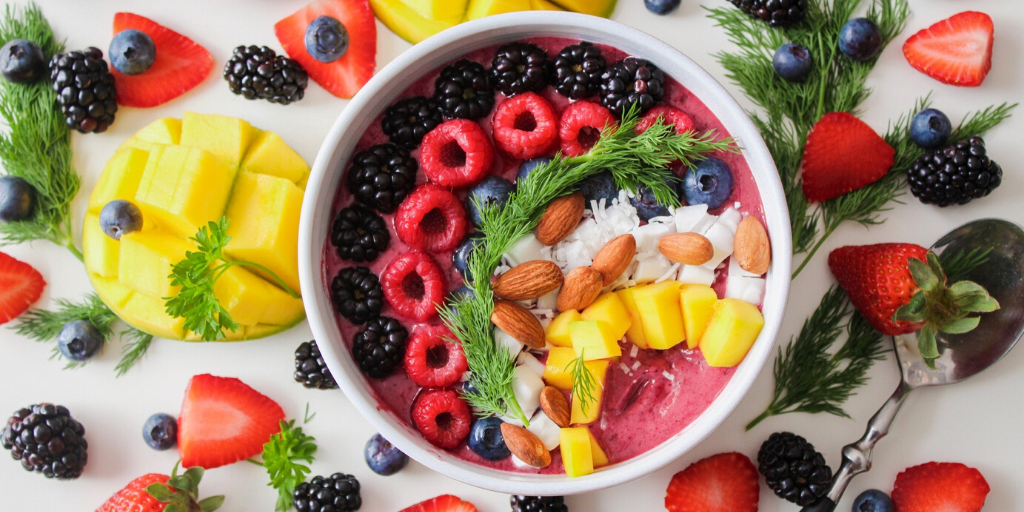
Helping Your Child Learn Her “A, B, C”s - Of Vitamins
Children grow so rapidly, and their little bodies need plenty of vitamins to keep up! Wondering where to start when it comes to learning about the essential vitamins and minerals for growth? Read on to discover the biggest nutrient needs for your growing child.
Everyone knows kids need their vitamins - but just how much, and from what sources? Learning the fundamentals of vitamins is as simple as A, B, C!
Despite our best efforts as parents, research shows that children often do not get the necessary vitamins and minerals from the food they eat. If your little one is under a year old, he or she will get all of her essential nutrients from either breastmilk, formula, or a combination of both. But as you start to introduce solid foods around six months, you may start to wonder how those foods will impact her growth and development, and many parents even wonder if their baby or toddler needs a multivitamin. Your child’s pediatrician may even make certain suggestions for your baby’s diet and nutrition. Taking the time to learn about essential vitamins can ease some of the stress parents feel about their child’s development - and if you have a toddler or preschooler, let them learn along with you!
Let’s start with the basics: A, B, and C.
1. Vitamin A
Vitamin A is essential for healthy skin and growth. It also plays a major role in vision and tissue repair.
Where can you find Vitamin A? Orange and yellow fruits and vegetables (oranges, bell peppers, cantaloupe, mango, carrots, nectarine), spinach, eggs, fortified milk and cereals
2. Vitamin B
Vitamin B plays a role in metabolic function and the production of red blood cells.
Where can you find Vitamin B? Red meat, chicken, fish, beans, nuts, citrus fruit, avocado, banana, eggs, milk, cheese, lentils, broccoli, spinach, kale
3. Vitamin C
Vitamin C is important for strengthening tissue, fighting infection, healing, and forming strong muscles and skin.
Where can you find Vitamin C? Spinach, cabbage, tomatoes, kiwi, strawberries, broccoli, oranges, red pepper, brussels sprouts, lemon, cauliflower, papaya
Now, let’s move on to some other important vitamins for children.
4. Vitamin D
Vitamin D is essential for strengthening teeth and bones. It helps the body absorb minerals such as calcium.
Where can you find Vitamin D? Salmon, tuna, eggs, fortified milk and juice, fortified cereals, tofu
5. Calcium
Calcium, like Vitamin D, is also important for healthy bones and teeth. A calcium deficiency during childhood can result in weak and fragile bones later in life (and an increased risk of osteoporosis).
Where can you find Calcium? Tofu, nuts, cheese, milk, bread, broccoli, cabbage, yogurt, fortified cereals, soybeans
6. Iron
Iron plays an essential role during growth, as it contributes to the production of blood and muscle-building.
Where can you find Iron? Cashews, beans, tofu, whole grain bread, lentils, spinach, red meat, peaches, prunes, mushrooms, hearts of palm
Now that you know your “A, B, C”s of vitamins and minerals, it’s time to take a closer look at your child’s diet! Again, if your baby is younger than one year and relies on a steady diet of breastmilk or formula, it’s rare to experience a vitamin deficiency. Toddlers and older children have different dietary needs as they transition away from milk as the foundation of their diet.
As a general rule of thumb, children need a few servings of whole grains each day. They should also have 1-3 servings of vegetables and 1-2 servings of fruits daily. Children need to get adequate calcium, and this can come from milk, yogurt, and cheese. Young kids also need protein, which can be found in meat sources (chicken, turkey, fish) or plant sources (beans, nuts, and peas).
What if my baby or toddler needs a multivitamin?
In the majority of cases, babies get adequate nutrition from breastmilk or formula. Sometimes, a pediatrician will recommend parents give their baby a multivitamin, usually in the form of liquid drops. Vitamin K, Vitamin D, Vitamin B12, and Iron are the most common recommended supplements for young babies and toddlers. Many babies receive a Vitamin K shot after birth, as recommended by the American Academy of Pediatrics, Breastfeeding mothers are sometimes advised to give Vitamin D supplements, as breastmilk alone does not provide all the Vitamin D a baby requires (formula is generally fortified with Vitamin D). Vegan and vegetarian mothers who breastfeed may also need to supplement with Vitamin B12, which is not found in plant sources. Although babies are born with iron reserves to protect them from anemia, some circumstances may require parents to give their baby an iron supplement.
So, take some time this week and read up on your vitamin “A, B, C”s - and teach your little one all about the wonderful vitamins and minerals that come from the food you eat! This can be a great learning project to do with toddlers and preschoolers as well. Always discuss any nutritional concerns with your child’s pediatrician before starting any kind of supplement.
Do remember to follow us on Instagram @keababies and join our loving and supportive KeaCommunity Facebook Group!
Parenting is awesome. Sleep is overrated. Every day is an adventure.
|
|
Meet Our KeaMommy Contributor: Kaitlyn Torrez I’m Kaitlyn Torrez, from the San Francisco Bay Area. I live with my husband and two children, Roman and Logan. I’m a former preschool teacher, currently enjoying being a stay at home mom. I love all things writing, coffee, and chocolate. In my free time, I enjoy reading, blogging, and working out. |


























































